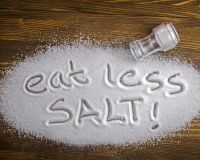
Potassium and protecting your heart
‘A high potassium level in your blood stream is serious and can cause an irregular heart beat leading to a crisis medical situation and in some cases a heart attack. Learn more about potassium here and how your kidney diet plays a key role in protecting your heart and maintaining your safety’
What is Potassium
Potassium is a mineral. It is found in many foods in different amounts. Some foods are known to be higher in potassium than others, for example: potatoes, fruit, vegetables, dairy foods (milk based foods) and protein foods (meat, poultry, fish and eggs).
You will hear these foods referred to as High Potassium Foods.
What is the function of Potassium?
Potassium’s main function is in muscle contraction. It helps control the contraction of the heart.
What should my levels be?
It is important that you understand what a normal level is and also know your own potassium level. On average a normal potassium level in our blood is between 3.5-5 mmol/L. Anything above 5mmol/l indicates a high potassium level (please note laboratory reference ranges may differ from hospital to hospital. Ask you Kidney (Renal) Dietitian what reference ranges are used in your hospital).
What causes a high Potassium level?
When you eat a food high in potassium, the level of potassium in your blood will increase. One of the functions of the kidney is to clear this excess potassium from your blood and keep your levels safe.
If your kidney is not functioning properly the level of potassium could remain dangerously high.
Consequences of high potassium?
High levels of potassium can be dangerous.
Some of the signs and consequences of high potassium include: muscle weakness, weak legs and a tingling sensation. If left untreated, the consequences of a high potassium level can result in a heart attack.
How can I help control my potassium level?
Your Kidney (Renal) Dietitian will look at your blood results and tell you if you need to follow a Low Potassium Kidney Diet in order to help maintain safe potassium levels.
By looking after what foods you eat and their amounts you will be able to control your Potassium levels. Your Kidney (Renal) Dietitian will provide an individualised diet plan built around your daily potassium allowances.
Low Potassium Diet
Potatoes, fruit, vegetables, and dairy products are all foods that contain a lot of potassium. Your Kidney (Renal) Dietitian will advise you on how many portions of each you can eat daily. All vegetables and potatoes should be boiled to allow some of the potassium in these foods to leach out into the surrounding water. Some Kidney (Renal) patients who find controlling their potassium levels difficult will be required to ‘double boil’ their potatoes i.e. change the water during the boiling process. Cooking methods like steaming or roasting of vegetables and potatoes should be avoided.
Your Kidney (Renal) Dietitian will advise you regarding your individualised dairy allowance.
Where necessary, the Kidney (Renal) Dietitian will also advise you on other high potassium foods that you should avoid and your individualised daily protein allowances to help to keep your blood potassium levels safe.


